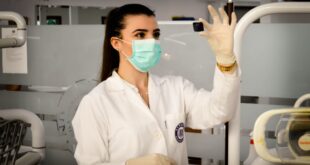Lung cancer is the second most deadly disease after heart disease. The number of deaths by lung cancer is increasing day by day. However, lung cancer screening, which is a medical advancement, plays an integral role in the early detection of lung cancer. According to many different studies,lungs cancer diagnosis at an early stage increases the life expectancy of people by 5 years, compared to lung cancer diagnosed at an advanced stage. In this post, we will cast a light on the advancements in diagnosis and innovative treatments for lung cancer.
What is Lung Cancer?
Lung cancer starts within the lungs due to the abnormal growth of cells or mutations. Our lungs are basically two spongy organs within the body that are responsible for controlling breathing and supplying oxygen to every part of the body. In that regard, they are the primary organs that are the building units of life. Death of old cells and the birth of new cells is normal; however, sometimes, cells continue to develop without any cause, and this abnormal growth causes cancer. The exact cause of the mutation is unknown. There are basically two kinds of cancer cells: benign and malignant. Lung cancer primarily develops in the lungs, usually in the airways or alveoli, and then continues to impact other parts of the body.
In addition to this, there are two kinds of lung cancer. The first type is non-small cell lung cancer, and the second type is small cell lung cancer. Non-small cell lung cancer is one of the most common types of lung cancer. Further, the most common types of this cancer include adenocarcinoma and squamous cell carcinoma.
On the contrary, small-cell lung cancer grows quickly until it reaches an advanced stage. This type of lung cancer is not easy to treat as it rapidly grows into different parts of the body and can cause severe damage. The types of small-cell lung cancer include small-cell carcinoma and combined small-cell carcinoma. As it spreads rapidly in the body, it may cause spinal tumors, thus affecting the whole body.
What are the Risk Factors and Symptoms of Lung Cancer?
Lung cancer is a silent and dangerous disease. However, in addition to mutation, there are some other causes of lung cancer, which include:
- If you have a family history of lung cancer, then you are at high risk of it.
- Exposure to hazardous chemicals on a daily basis also plays an integral role in lung cancer.
- Toxic air pollution is the leading cause of death by lung cancer.
Although lung cancer does not have exclusive symptoms, some common symptoms that may indicate that something is wrong include the following:
- Consistent High Fever
- A consistent cough that does not go away and gets worse with time.
- Swollen face
- Pain in different parts of the body without any reason
- A sheer pain in the rib cage due to excessive cough. Pain in the rib cage might be an indication of another underlying cause that seeks investigation.
What are the Advancements in the Lung Cancer Diagnosis?
Advancements in technology have brought about a significant revolution within the medical field, specifically in the area of diagnosis. Some of the advancements include the following:
3D CT Imaging
It is a mobile imaging system that focuses on highlighting cancerous growth within the lungs for a clear biopsy.
Low-Dose CT Scan
It is specifically for the lung screening of the age group between 60-70 with a history of chain smoking.
Artificial Intelligence
These days, Artificial neural networks (ANNs) are also employed to predict the risk of cancer.
Bronchoscopy
It is a specific procedure that uses the white balance principle to show tumors as black disruptions in the white part of the tissue.
What are the Innovative Treatment Procedures for Lung Cancer?
Immunotherapy
The FDA has approved many immunotherapy drugs for lung cancer treatment including pembrolizumab (Keytruda), atezolizumab, and and nivoluma.
Targeted Therapy
This treatment is highly specific and reduces the adverse impact of treatment.
Ablation Therapy
This therapy relies on MRI imaging to offer precise treatment.
Robot-assisted surgery
This therapy offers assistance to doctors by providing a high-definition view of the targeted area.
Microcoil localization
It is an invasive procedure that uses needles to remove the nodules in the lungs.
Conclusion
Lung cancer can eat you alive without you even noticing. In that regard, it is essential to go for lung cancer screening. There are many different options for diagnosis. The doctor may suggest a specific procedure for diagnosis. For any kind of diagnosis and lung cancer screening, you may visit ViaScan of Las Colinas. ViaScan of Las Colinas is an accredited lab that relies on the latest technology and equipment for screening. The use of the latest technology also offers reliable screening results.
 The Random Collective Where Curiosity Meets Creativity
The Random Collective Where Curiosity Meets Creativity






